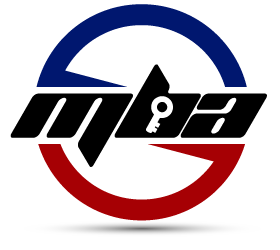In this episode, we’ll discuss the different kinds of power you can use to get things done within your team or across your organization.
Show Notes
Have you ever been frustrated because things aren’t getting done? Are others failing to do their part to move your project along?
If you’ve ever wished you had the power to influence others to take action, this episode is for you.
For larger, more complex initiatives (those we can’t do on our own), we need other people. We may sometimes think that projects would be much easier if it weren’t for the people. But we need others to get things done.
Types of Power
A while back, I heard an episode of the Manager Tools podcast in which they discuss three types of power people use to get things done. Those types of power are role, expertise, and relationships.
Each of these types of power allows you to influence others to take a specific action.
With role power, you use your positional authority to get things done. Using role power, you cause the people who report to you to take action. This can range from coercion and ordering people around to leading through setting a compelling vision.
People do as you ask because you’re their boss and you have the ability to affect their career.
With expertise power, people look to you for answers because you’re seen as an expert or authority in a specific area. This type of power grows as your knowledge grows.
People do as you ask because you are an expert.
The third type of power is relationship power. This type of power is built up over time and you build trust with others in your organization. Relationships and trust are like a bank account that grows as you invest time and invest in listening to others.
With relationship power, people do as you ask because you’ve build trust and they believe in you.
Appropriate Use of Power
Many of us may not have the role power to command others. But if you do, there are specific context in which it may be appropriate to use role power.
If there is an emergency or safety is at risk, role power can be used to ensure things get done quickly or avoid certain types of risk. However, this should only be the case in rare exceptions.
Expertise power may be used if you have deep, specific knowledge in the subject matter. When using expertise power, help people to understand the ‘why’ behind your direction so they can make better decisions themselves.
In most situations, relationship power is the most powerful and sustaining approach. Building relationships with others creates a collaborative, open environment of trust. People may reprioritize other work if you have a strong relationship you ask them for help.
Building and maintaining relationships helps your ability to influence and get things done. What relationships do you need to build in your organization?
Thank you for listening to the program
To get more valuable content to enhance your skills and advance your career, you can subscribe on iTunes and other podcatchers.
Also, reviews on iTunes are highly appreciated! I read each review and it helps keep me motivated to continue to bring you valuable content each week.



